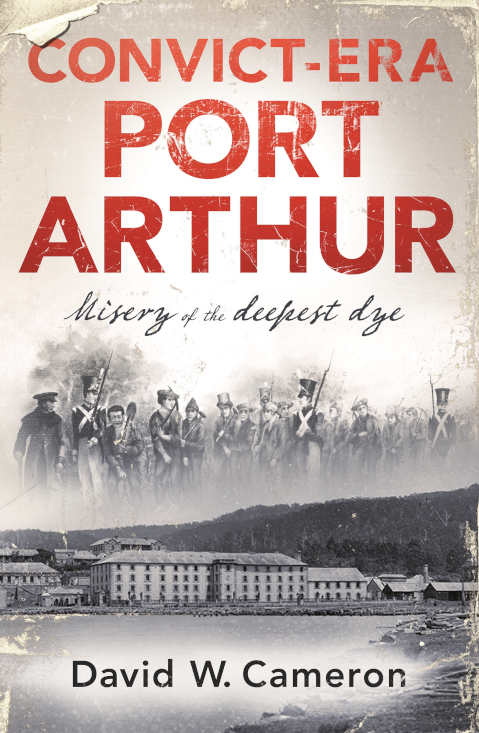Convict-era Port Arthur
 Thursday, March 7, 2024 at 9:00AM
Thursday, March 7, 2024 at 9:00AM 
With special guest:
-
David W Cameron
… in conversation with Bill Kable
Port Arthur is a beautiful setting for what our guest today describes as “misery of the deepest dye”.
In his book Convict-Era Port Arthur David Cameron takes us back to the days before it became a convict settlement, before its charms were viewed in a completely different light by the British newcomers.
Its advantages as a proposed convict settlement included that it was surrounded by wild impenetrable bush except for one narrow access route that was easily secured. The security at what became known as The Dog Line involved half-starved dogs that were waiting for any convicts trying to escape. You could not swim away from confinement but just in case food scraps were often scattered to keep the sharks interested.
However as we hear today there was one bold escape when convicts stole the Commandant’s boat and got as far as New South Wales before their recapture and return. David tells us what the conditions were really like and why Port Arthur had such a feared reputation as the last stop for the worst of the worst. Most of the inmates had committed a second offence on top of the original crime that had them sent to New South Wales or Tasmania.
Naturally there are lots of stories about this place and as we find out there are some surprises. Port Arthur had the first railroad in the country and very probably the biggest building at the time of the construction of the Granary which we now know as the Penitentiary building.
We hear about the Island of the Dead and the caretaker who volunteered to live with the ghosts. Near that island is Point Puer where boy children as young as nine were sent. There were no female convicts at Port Arthur who had their own horrors to deal with in the Female Factory in Hobart.
And still amidst these truly horrible conditions we hear about some of the ruses the convicts got up to which shows their inventiveness.
This is an important story for all Australians and illustrative for everyone of what the conditions in the colonies were like in the early days.
David W Cameron
David W. Cameron received his PhD in biological anthropology at the Australian National University and is a former Australian Research Council QEII Fellow at the Department of Anatomy & Histology, University of Sydney. He has conducted fieldwork in Australia, Europe, the Middle East and Asia. He is the author of several books on Australian military history and primate evolutionary biology and has published over 60 papers in internationally peer-reviewed journals. He lives in Canberra.
Song selection by our guest: Let it Be by The Beatles
Note: This program is an encore presentation of the one aired on 18 November 2021.
 Men's Health,
Men's Health,  Mental Health,
Mental Health,  Young Men
Young Men 
